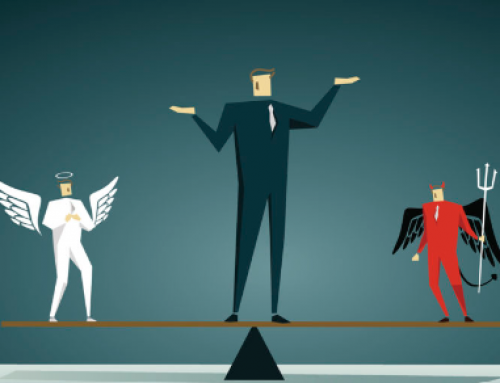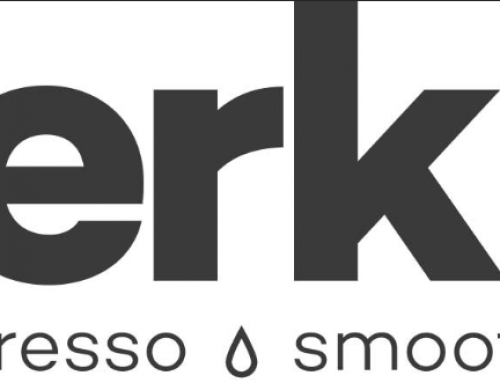In the business world, over 53% of LGBTQ+ employees hide their identities, and more than 62% of people aged between 24 and 40 go back ‘into the closet’ when they change jobs. Comparing these percentages with the statistic that employees are up to 32% more productive when they feel comfortable being out in the workplace, it isn’t ‘just’ immoral for companies to not practice a high level of inclusion in the workplace, but also damages their productivity. The World Bank estimates that $32 billion is lost every year due to companies not being LGBTQ+ inclusive. Consequently, companies who welcome the LGBTQ+ community to be fully themselves at work, perform better, and therefore do better!
I recently had the pleasure of speaking with Filipe da Silva, to get an insight into the work he has done for inclusion and diversity in the CleanTech sector, as well as understand what more can be done to attract a diverse workforce and make everyone feel more comfortable in the workplace.
Last month, Filipe was selected as one of the Top 10 Diversity Heroes at this year’s British LGBT Awards. Filipe has dedicated the last 6 years, to the extremely important campaign, inclusion and diversity in the workplace. When Filipe came out 6 years ago, he became aware of people that were fighting for equality and inclusion of the LGBTQ+ community. This empowered him to join the fight. Filipe is a consulting leader for energy, resources, and utilities at Tata Consultancy Services, he is also Chair of the TCS LGBTQ+ network and is a Diversity & Inclusion TCS Council Leader.
How did you get into the CleanTech sector?
I finished my MBA in 2012, and I really wanted to do something that allowed me to be myself. At the time we were leaving the Grand Recession, I was looking at the current trends in energy, and where the growth was coming from – it was coming from technology and renewables, and I always had a passion for energy. I wanted to find something where I could be successful and connect those points together. Energy was a hot topic, renewables were picking up in Europe, and I thought I really want to work in a company that serves energy clients through technology. That’s when I started working with Infosys. I started to understand the pressing issue for the majority of our clients, but also our society – around energy, climate, and the integration of energy resources. It takes effort trying to turn these issues into meaningful strategies, and from that finding ways to not only create solutions, but also influence the government to create policies to solve these problems.
What hurdles did you have to overcome, working in a CleanTech consultancy that had been silent about LGBTQ+ inclusion?
They knew straight away that I was gay, because at the top of my CV I had written that I been selected as Outstanding Financial Times Future Leader, so I was hoping that that would ring a bell! When I joined, I wanted to create an LGBTQ+ Network. The aim of it being to; find policies that create awareness and allow celebration of the LGBTQ+ community, and to also elevate the community to the top – I wanted our community to be represented across all levels of the company.
I went to HR with these ideas, and they were like “sure you can do it, let’s do it”. I started going around the office to tell people that I’m starting this network and asked if they wanted to join as an ally. At that time, I knew someone was LGBTQ+ in the company, so I asked if he wanted to join. He said no, ‘you will never get promoted if you do that’. That was quite weird to hear.
As we were such a large organisation, we had an LGBTQ+ Rights Portal, which had 90 people in at the time. From this, I found a couple of people that were ‘out’ in India. At that time homosexuality was still criminalised in India, so I had to broach the topic carefully. Our headquarters are in India and so the organisation has a strong Indian culture – so I did find it challenging to identify who’s going to be the first follower. I got a couple of people to join in India and HR was super supportive which really helped!
At the end of the day, a network only makes sense if you have a fair representation of your company. So, I think that was the biggest challenge, ‘how will we find LGBTQ+ people who want to join this organisation, and want to be out in a way that supports the development of this network?’.
Something that really helped was the onboarding of our UK Graduate Programme – it gave us a huge opportunity to explain our network goals during the induction phase and call out for new members to join. Within the first couple of sessions 6 or 7 people said ‘yes, I want to be involved’. We capitalised on this well and now give all new graduates the opportunity to get involved in the network.
The next challenge was being in an Indian organisation where at the time homosexuality was illegal. How can you work and align your policies and structure when there are 20,000 people working in the UK? It turned out that it wasn’t a tremendous challenge, but rather a huge opportunity, because we were able to start the network in the UK. A lot of our colleagues in India didn’t feel supported or heard so it gave us the opportunity to lobby around to fight for the same rights for them.
When we found out 2 years ago that India had decriminalised homosexuality, we had a big party to celebrate, and by that time my colleagues in India already had their own LGBTQ+ network. Overall, I think the first step takes the most effort but once you get that first follower so many amazing things will come.
How can companies that don’t have a diverse workforce make it more appealing and welcoming to join?
I think from a recruitment perspective it is really important to list on your job description “we are looking for a diverse workforce” or “we are looking for diverse backgrounds”, so you are almost inviting someone to come and join the organisation and say, “I am LGBT”, and not feel that they have to hide it. We understand that there are business advantages to that – according to McKinsey companies with a diverse workforce overperform by 20% any organisation who does not.
I think the second step is to ‘stand up, speak up, and act up’ and what I mean by that, is that if I was a white heterosexual male, I would still stand up for people who aren’t like me. For example, I am part of the Women’s Network, and a founding member of the Mental Health Network. I do it because I care about their causes, I understand as an organisation and society we need to walk in other people’s shoes and say we need to do better. This includes creating policies that support all diverse employees, ensuring equal treatment, and having a caring and supportive workplace. It’s important to celebrate the days that empower the people that are underrepresented, whether that’s International Women’s Day, or Pride.
Thirdly, you need to create an environment that will allow people to thrive. Like having the right policies in place that ensure equality or that are inviting diverse people to be part of your organisation. Not only policies covering harassment and sexual harassment or discrimination, but also be working on the best policies to attract the best talent. That will help you to create role models that people want to emulate or see the possibility of how they can go even further.
Finally, I think it’s important for people not to make assumptions that someone does or doesn’t belong to the LGBTQ+ community, because we are the ‘invisible community’. I think assuming someone is ‘straight’, makes it harder for them to come out at work. Over 50% of people in the LGBTQ+ community aren’t ‘out’ in the workplace – that is so much wasted potential because effort is being used to hide who they are as they don’t feel comfortable enough in the workplace to fully be themselves.
Overall, it is so important to create a work environment where everyone can be themselves – people in the LGBTQ+ community move jobs 3 times more often than heterosexual employees because their voices are not heard or they are not represented in the top layers of the organisational structures.
Since founding the LGBTQ+ Network, 7 more groups have been created, allowing them to feel more empowered, create better policies, and allow them to network with people that share something in common with them.
Finally, I wanted to say a massive congratulations on being shortlisted for the Top 10 Diversity Heroes, at the LGBT Awards!
It’s always good to be recognised for our work, especially among people who are super famous, and have been using their voice to amplify our rights within their community. They have a strong reach and ability to call out particular organisations or situations that are non-inclusive. I know in August, they are going to have an awards ceremony to announce first place – but I already feel like a winner being part of that list. Especially because I’ve been nominated amongst really inspirational people that are trying to advance and create an inclusive society. It’s a pleasure to be nominated – and for my organisation to be part of it. Especially because we started off so small. I remember getting emails from people saying, “I don’t feel comfortable talking about LGBTQ+ at work”, and “why should we talk about sexuality at work?”. So this journey has been super educational for all of us as an organisation, “It’s not about who I go to bed with, it’s about who I am as a person”.
It was not easy working for Asian-based organisations, but it was, for me, where the business impact could be done. You know what, the journey has been worth it! I also think that’s why people like me are an asset to any company embracing CleanTech, and the fight against climate change. When it comes to the fight against climate change and to accelerate the speed of energy transition, the LGBTQ+ community and other underrepresented communities in business have so much to offer as they have been the most affected. Look at our history! We have a history of fighting for survival. We are trained for this fight. We may not always be perfect, but our history shows we know how to struggle and win and how to build a resilient and a caring community!
By Emma Beaver


